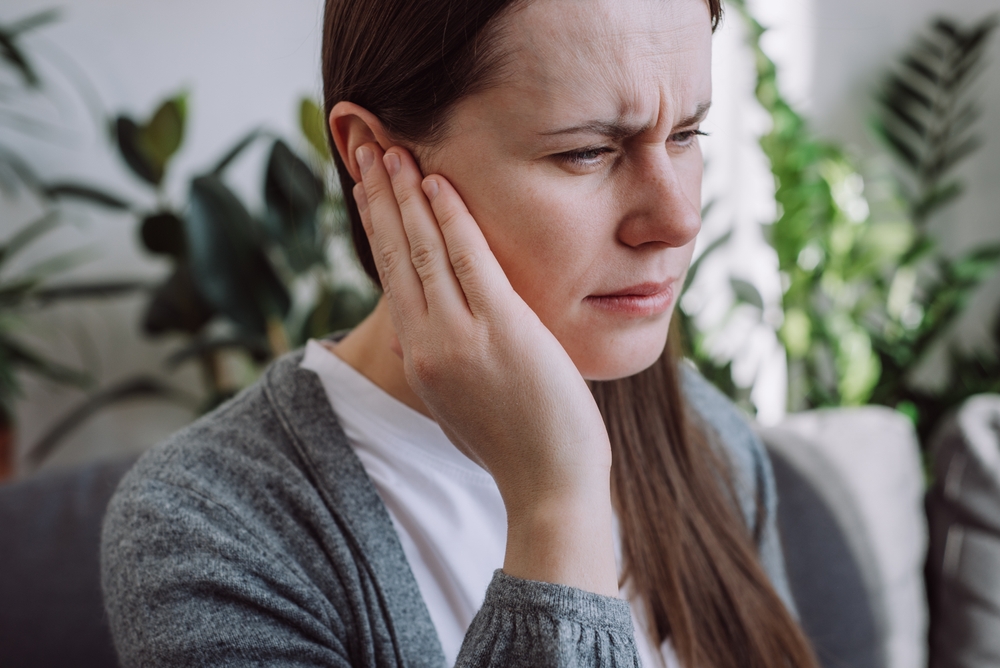 Do you hear a constant ringing in one or both of your ears? Perhaps the sound, which can be annoying and utterly debilitating at worst, is starting to affect your overall quality of life.
Do you hear a constant ringing in one or both of your ears? Perhaps the sound, which can be annoying and utterly debilitating at worst, is starting to affect your overall quality of life.
A lack of focus, changes in sleeping patterns, and even pain are just some of the side effects of tinnitus, causing knock-on issues for your health and general well-being.
To understand more about tinnitus, which affects 25% of the US population, here is a brief guide on the possible causes of the condition, its symptoms, and what you can do to manage the condition better.
What causes tinnitus?
Tinnitus occurs when you hear a persistent sound that does not come from external sources. Sometimes, it presents as a ringing sound; at other times, it may sound like buzzing or roaring.
While doctors and scientists have yet to determine the root cause of tinnitus, a few factors have been linked to the condition in recent research. These include:
- Exposure to excessive noise levels on a regular basis
- Hearing loss, such as presbycusis
- Side effects of particular prescription medication, including anti-inflammatory drugs and antibiotics
- Earwax or fluid buildup in the ear canal
- Serious injuries sustained to the head or neck area.
Tinnitus can affect young and old alike, so it’s important to seek medical treatment or take a hearing test if you suspect you may have the condition.
Types of Tinnitus
There are two main types of tinnitus: subjective and objective.
Subjective tinnitus results in you hearing a sound that isn’t actually there due to nerve complications in the auditory canal.
On the other hand, objective tinnitus occurs near the middle ear and is usually the result of a physiological process, such as a muscle spasm. In this case, the sound comes from inside the ear, making it different from the phantom sound experienced by those with subjective tinnitus.
There is no cure for subjective tinnitus yet, but there are manageable treatment plans available for objective tinnitus.
How to tell if you have tinnitus
There are a number of symptoms that could point to tinnitus. If you experience any of these symptoms, we recommend seeking advice from a hearing specialist so that you can learn how to manage your condition better.
Symptoms of tinnitus include:
- Ringing, buzzing, whirring, or any persistent sound that only you can hear
- The presence of pain in one or both ears
- Increasing bouts of dizziness that can’t be explained otherwise
- A feeling that your head is heavy or full.
Tinnitus, as a condition, has varying degrees. Some people experience the noise as really loud and obtrusive. While others hear the phantom sound very softly.
The intervals at which the sound occurs also differ from person to person.
Treatment for tinnitus
There is no quick-fix cure for tinnitus. However, there are several things you can do to minimize the effect of the condition on your health.
See an auditory specialist
A medical professional may conduct sound or behavioral therapy to help decrease the prevalence of tinnitus.
You may also be advised to use a hearing aid, which can reduce the impact of tinnitus, a common hearing loss symptom.
A hearing aid will help ease the noise in your ear by amplifying external noises and tricking your mind into listening to those instead of what’s coming from your head.
Follow a healthy lifestyle
Eating a balanced diet and including regular exercise in your daily routine will contribute to the healthier functioning of your body.
According to the American Tinnitus Association, you can do no magic superfood or exercise to get rid of tinnitus directly. However, the noise may be reduced when your blood pressure and blood sugar levels are under control.
Tinnitus-masking devices
Tinnitus-masking devices, or sound generators, are designed to hide the annoying ringing or buzzing in your head.
They look almost like hearing aids and are placed directly into the ear canal, making them largely invisible. Instead of amplifying sounds, as a hearing aid does, the tinnitus-masking device produces white noise at a very low volume to cover up the incessant ringing of tinnitus.
Get Help for Your Hearing Health Today
Tinnitus can be a challenging condition for even the most patient individual to deal with. Through the use of different therapies and hearing devices, you are able to lessen the effects of the condition.
For more advice on how to take care of your ear health, visit El Dorado Hearing, where our hearing specialists will be able to guide you on how to manage your tinnitus better through a range of cutting-edge therapies.



Leave a Reply